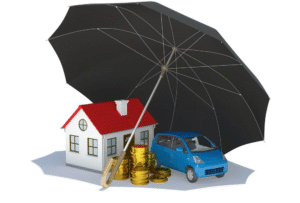Discover the main tips to increase your credit score
Want a better credit score? Discover practical tips to boost your score and improve your financial health with simple, effective steps.
See tips to increase your credit score

If you’ve ever tried to rent an apartment, get a car loan, or apply for a credit card, chances are you’ve heard about that mysterious three-digit number: your credit score. Whether your score is sitting lower than you’d like, or you just want to push it a little higher, this post is here to help.
No complicated financial jargon, no lectures, just some real talk and tips that actually work. If you’ve been feeling stuck or confused about where to start, relax. Grab a coffee (or your favorite drink), and let’s dive in.
Understanding the Credit Score Game
Before we get into what you can do, it helps to understand what your credit score is really measuring. It’s basically a snapshot of how risky you are (financially speaking) to lenders.
The higher your score, the more confident banks, landlords, or credit card companies feel about lending you money or offering you a lease.
There are a few main factors that affect your score: how much you owe, your payment history, how long you’ve had credit, the types of credit you have, and how often you apply for new credit.
Sounds like a lot, I know, but the good news is that even small changes in these areas can make a big difference over time.
Paying On Time Is Your Golden Rule
Okay, let’s get the most obvious (but most important) thing out of the way: paying your bills on time is everything.
Late payments can drag your score down fast, and they tend to stick around on your report for years. Even one missed payment can cause a decent drop, especially if your credit history is still pretty new.
Set reminders on your phone, use autopay, post sticky notes on your fridge—whatever it takes. Staying on top of your due dates is one of the simplest ways to protect and grow your score.
Your Credit Card Balances Matter More Than You Think
This one catches a lot of people off guard. Even if you’re making your payments on time, having a high balance on your credit cards can still hurt your score. Why? Because it increases your credit utilization ratio, that’s the fancy term for how much of your available credit you’re actually using.
Ideally, you want to keep your balance below 30% of your limit, but if you can go lower, even better.
Let’s say you have a credit card with a $1,000 limit, try to keep your balance under $300. It shows lenders that you’re not maxing out your credit, and that you’re managing your money responsibly.
Don’t Cancel That Old Credit Card Just Yet
It might feel tempting to close that old credit card you never use anymore, especially if you’re trying to “clean up” your finances. But hold on a sec, doing that might actually backfire.
Older accounts help build your credit age, which is a factor in your score. Plus, closing a card reduces your total available credit, which could increase your utilization ratio and drop your score.
Apply for Credit Sparingly
You know those offers that show up in your mailbox or inbox every week? “Pre-approved for a $5,000 credit line!” or “You’re eligible for this amazing new card!” Yeah, they can be tempting.
Each time you apply for credit, a “hard inquiry” shows up on your report.
One or two here and there is no big deal, but if you’re applying for several cards or loans all at once, it can signal financial distress to lenders. So before you hit “Apply,” think about whether you really need that new credit line.
Improving Your Score Takes Time
Look, boosting your credit score isn’t something that happens overnight. It’s more like a marathon than a sprint.
But if you stay consistent, paying on time, managing your balances, avoiding unnecessary credit applications, you will see improvement.
And that better score? It opens doors: lower interest rates, better loan approvals, maybe even a nicer apartment or car lease.
If your credit score isn’t where you want it to be, don’t beat yourself up. Seriously. A lot of people are in the same boat, and the important thing is that you’re paying attention and ready to make a change.
So take a breath, make a game plan, and start making those little tweaks. You don’t have to be perfect, you just have to keep moving in the right direction. And every smart move you make today gets you one step closer to financial freedom tomorrow.






